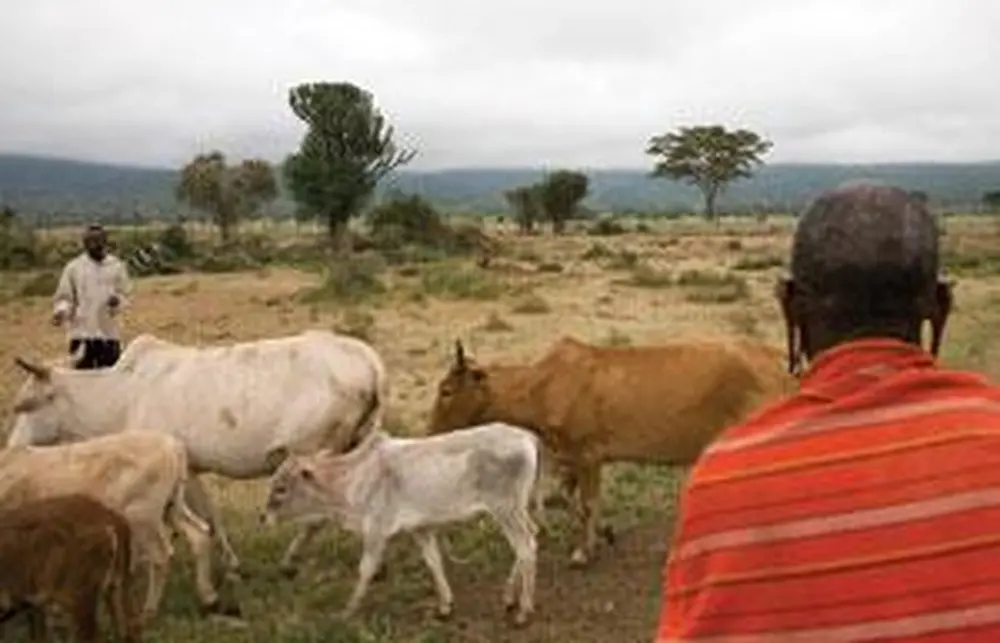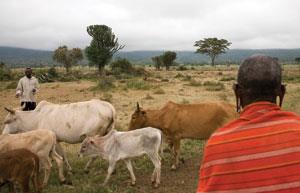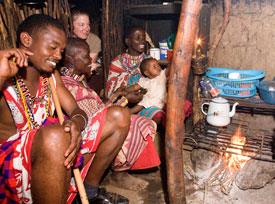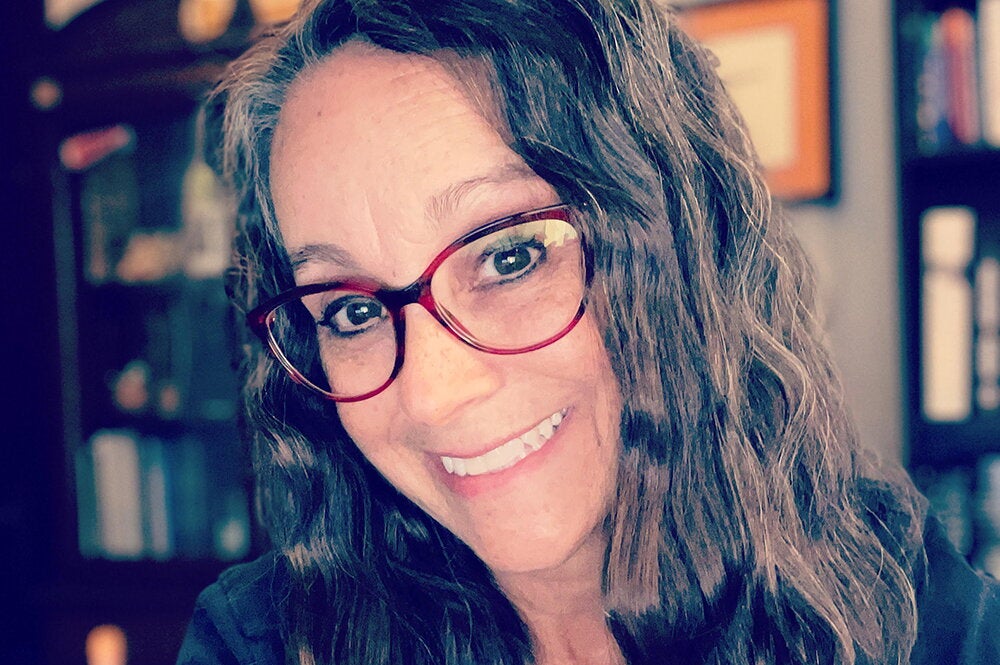

Like so many students, Robin Wiszowaty suffered from culture shock when she traveled to Africa for her foreign exchange experience. But in her case, it was reverse culture shock. Her greatest shock was coming back home and trying to readjust to her culture in the United States.
After spending a year riding across Kenya crammed in the back of a pickup, Wiszowaty says it felt bizarre traveling through the Chicago suburbs in an air-conditioned Camry. She was shocked by the extravagance and excess all around her, from the overstocked aisles of supermarkets to the thoughtless waste of water.
Back in Schaumburg, Ill., Wiszowaty continued her Kenyan habit of walking most places, including regular six-mile hikes to her mom’s office. What’s more, she walked barefoot, although she always carried along a pair of sandals because she knew they were required to enter stores along the way.
“I struggled to get back into the feel of my ‘home’ culture,” says Wizowaty, a 2003 LAS alum in speech communications. “Everywhere I went, I felt foreign in my homeland.”
Therefore, after a year of unsuccessfully trying to adjust to the U.S., Wiszowaty returned to Africa in 2004 to become the Kenyan program director of Free the Children, an organization that reaches into six countries with development assistance. She has remained there ever since, although she periodically returns to the U.S. and Canada to give talks.
It’s almost as if Wiszowaty was born in the wrong place, for she felt restless long before going to Kenya on her one-year foreign exchange during her senior year at the University of Illinois. She describes herself as a disgruntled teen at the time—but not in the usual sense.
“I needed to go to a place furthest from my current reality, where I wouldn’t have a language or technology to rely upon,” she says.

That place turned out to be a small Maasai village in rural Kenya, where she was taken in by a Kenyan family. Life in a Maasai village certainly had its own forms of culture shock; but in contrast to her life in Chicago, Wiszowaty embraced these shocks with enthusiasm. For instance, she had to behave as a traditional Maasai woman, and that meant regularly retrieving water from the spring a mile away—strapping a five-gallon container to her back, which was held in place by hand-woven ropes looped around her forehead. She thrived under the workload.
“It’s literally backbreaking work, and it’s for survival, so you must do it whether you feel sick or not,” she says. “But at the same time I loved it because it was completely different than anything I had known.”
During her first year in Kenya, drought had the region in its grip, and the only time water seeped out of the spring was at night. So Wiszowaty and her Kenyan “mama” would regularly wake up in the middle of the night and make their way through the brush in the pitch dark with the sound of hyenas on either side—a “bone-chilling, high-pitched” sound, she says.
Wiszowaty became totally immersed in the culture, witnessing births, funerals, and weddings, including the marriage of her Kenyan father, or baba, to his second wife. She faced many day-to-day issues, such as how to keep cows from drinking her bathwater while she washed, or how to display courage as her mama cut jiggers out of her feet. She also encountered more serious trials, such as bouts with typhoid and malaria.
However, the culture shocks that she had the hardest time coping with in Africa were not the ones in the rural village. The greatest shocks were in the big city, Nairobi. Wiszowaty recalls the day in Nairobi when she heard a yelp and saw two boys hitting a third boy with sticks and then yanking the jeans off of him and running away with the pilfered pants.
“No one helped the boy. I certainly didn’t,” she writes in her book, My Maasai Life. “I’d only watched in astonishment, not knowing what to do. I was clearly larger than his attackers and could probably have fended them off. But then what? More street boys would likely come to their help, and then it wouldn’t be me against two; it would be me against eight, maybe more.”
Wiszowaty was struck by the desperation, chaos, and corruption of Nairobi, but her days in the small rural village truly felt like home. As for Wiszowaty’s mother and father back in Chicago, there was much tension over their youngest daughter’s choice to settle in Kenya. They were confused by Robin’s dissatisfaction with life in America and equally baffled when she had difficulty readjusting to the United States after her first year overseas.
Resolution came when Wiszowaty’s mother and father traveled to Kenya and saw the village firsthand. The parents threw themselves into the trip with enthusiasm, even hauling firewood and water one afternoon. Afterwards, the village gathered around and asked the parents to speak to the growing crowd. Mr. Wiszowaty did so, and when he had finished, villagers called for his wife to say a few words. Mrs. Wiszowaty rose to her feet with great trepidation.
As her daughter translated, she said, “It’s so difficult to watch a child grow up. First you carry your baby in your stomach. Then you carry them in your arms. Then you watch them scamper across the floor, then learn to walk, and then learn to run. My baby ran away. She ran all the way here to Kenya. I never understood why, until I saw she had family like you. Now I can leave, knowing she’s being well taken care of.”
After the cheering subsided, Robin’s father whispered to his daughter, “Did we do okay?” Robin, sitting between her parents, squeezed their hands in response.


